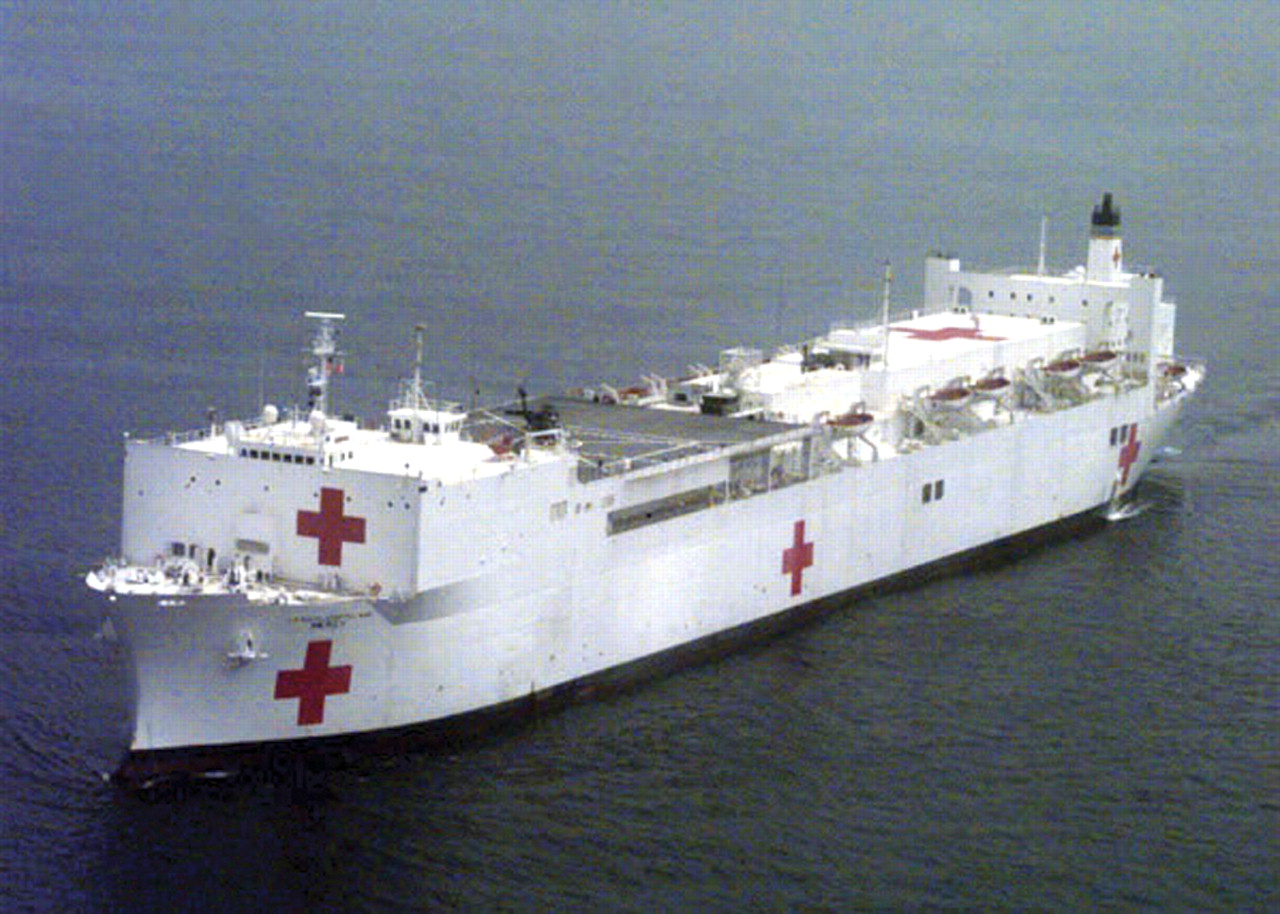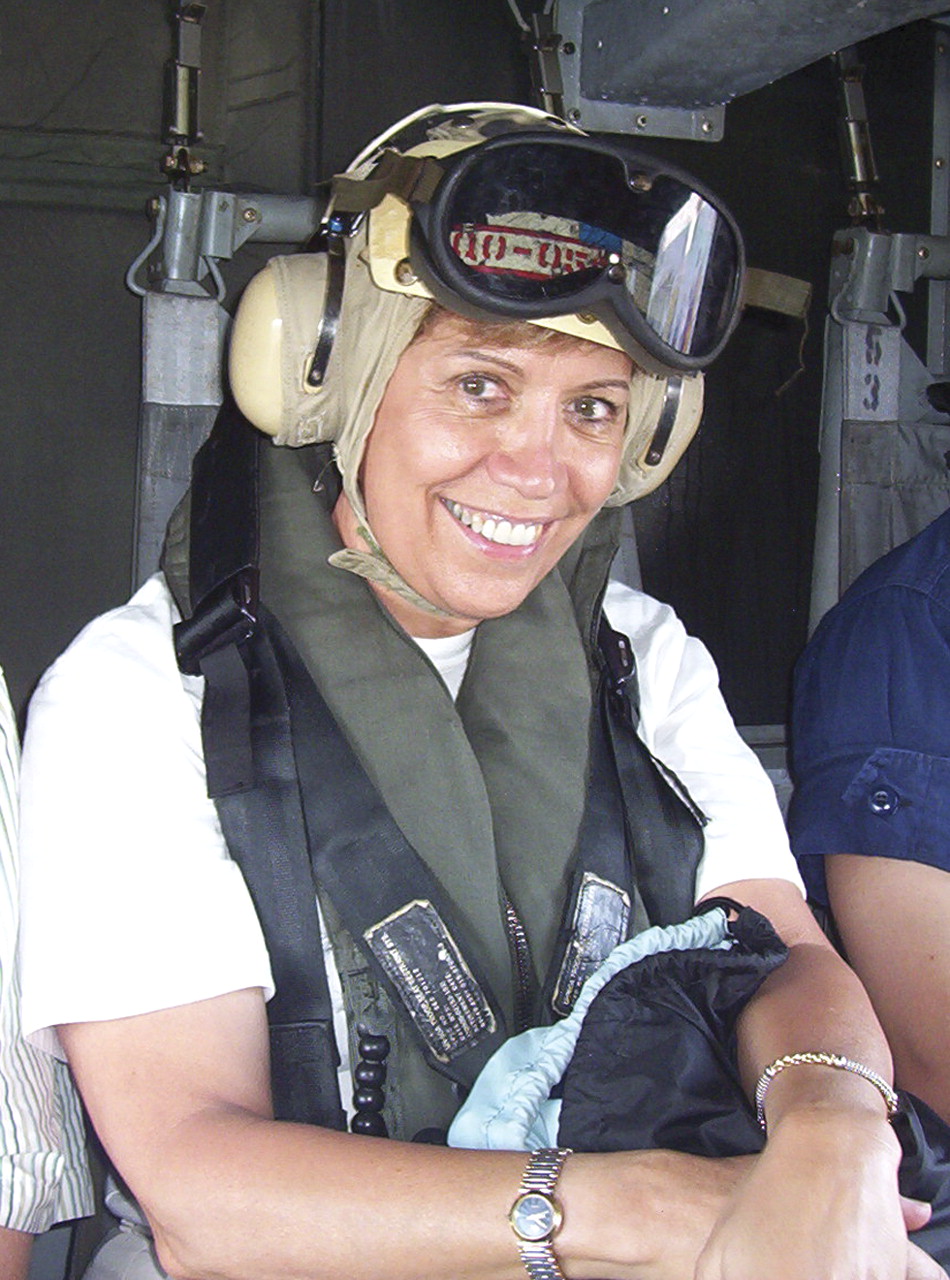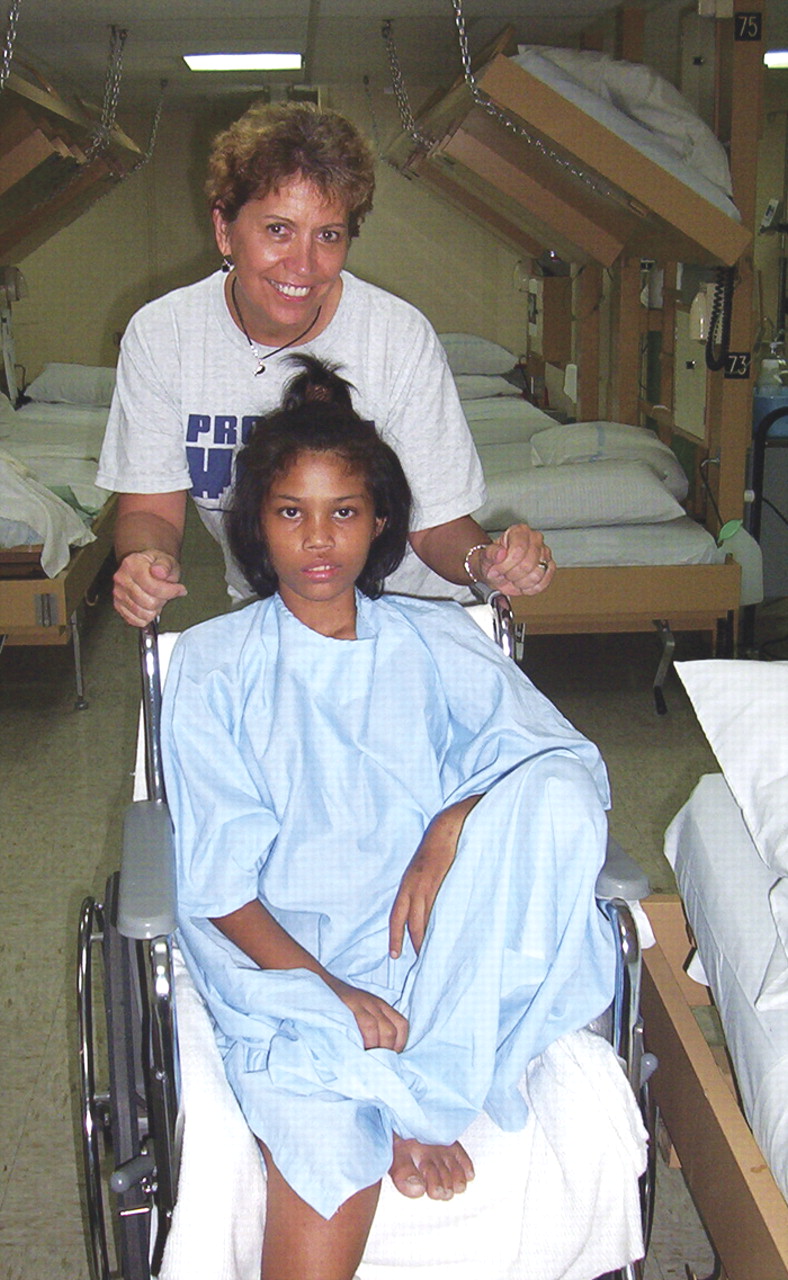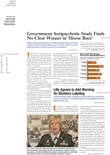By the time an e-mail about a humanitarian aid mission flashed across the computer screen of Atlanta psychiatrist
Saundra Maass-Robinson, M.D., in January, she was just a click away from a venture that would take her halfway around the world on a “humbling and challenging” mission to help survivors of the Indian Ocean tsunami.
The e-mail stated that psychiatrists were among those needed to provide postdisaster mental health services to tsunami survivors in Southeast Asia on a monthlong humanitarian aid mission coordinated by the U.S. Navy and civilian medical personnel volunteering with Project HOPE (Health Opportunities for People Everywhere).
The organization began in 1958 with a peacetime hospital ship and now operates disaster-aid missions and conducts land-based medical training and health care education throughout the world.
For this mission, civilian personnel were to provide medical services to sick and injured patients on board the USNS Mercy, a Navy ship equipped with operating rooms, surgical wards, and an intensive-care unit.
Maass-Robinson, spurred on by what she jokingly referred to as an“ impulse control disorder,” sent a reply indicating that she was interested in participating in the mission and attached her CV, she told Psychiatric News.
It's not as though she wasn't already busy enough—Maass-Robinson maintains a private practice, supervises psychiatry and pediatric residents as an associate clinical professor at Morehouse School of Medicine, and spends two days a week consulting at a women's prison in Atlanta.
She'd acquired considerable disaster mental health experience by volunteering on missions such as one to aid victims of Hurricane Hugo in 1989. She was also director of psychiatric services for the 1996 Olympics in Atlanta, during which Eric Rudolph planted a bomb in Centennial Olympic Park, killing one person, wounding more than 100, and sowing considerable panic.
Just an hour after she sent her response to Project HOPE, Maass-Robinson received a call asking if she could leave for the mission the following week.
“I thought to myself, I have my consultation work and private practice and wondered—can I walk away from those for a month?”
After discussing the matter with family, friends, and colleagues, she scrambled to make the necessary arrangements and was on her way.
Adventure on High Seas
After being trained for the mission on the Mercy's sister ship, the USNS Comfort, for four days, Maass-Robinson flew to Singapore where she, along with about 90 medical professionals, boarded the Mercy to begin their work.
The medical personnel included physicians, nurses, and a few social workers. Maass-Robinson was one of just two psychiatrists on the mission and the only one charged with direct patient care. There were also anesthesiologists, plastic surgeons, thoracic surgeons, and other specialists.“ This mission featured the crème de la crème” of the medical world, she noted.
The Mercy was no cruise ship, however. “We slept in Navy bunks, wore regulation dress, and climbed 86 steps from our bunks to the mess hall each day to eat,” she said.
After the ship dropped its anchor two miles off the northern coast of Sumatra, it was a week before the Indonesian government granted permission for ship personnel to begin providing services to tsunami survivors. “None of us understood exactly what was going on” during this time, she said.
The weeklong limbo created frustration and anxiety in many of the medical personnel, and Maass-Robinson's first job was not to aid tsunami survivors, but to make herself available to those who were discouraged by their inability to begin the mission.
Physicians Confront Barriers
When the mission began, the ship functioned as a floating hospital, and patients were flown by helicopter from the Banda Aceh region to the ship's medical wards.
Maass-Robinson went on rounds with the other medical specialists and, in doing so, identified patients who needed mental health care. She then returned to provide this care on an individual basis.
Maass-Robinson faced several barriers, however, in trying to reach out to these patients.
One of these was the ability to communicate effectively with them. Medical staff relied on a limited number of interpreters who spoke Indonesian. However, many of the patients spoke Achinese, a dialect of Indonesian, and sometimes the subtleties of meaning were lost in translation, she noted.
Another problem was that while she could administer psychotropic medications to patients on the ship, she learned that patients would have little or no access to these medications once back on land.
“I did start some patients on antidepressants,” she said,“ and noticed that it made a difference for them for the time they were on the ship. But I wondered—was this enough to help them turn a corner?”
Patients Grateful for Help
Maass-Robinson was surprised that when interpreters introduced her as a psychiatrist to patients, “the mention of my specialty immediately brought smiles and verbal expressions of gratitude from patients and their family members.”
She was able to provide brief, supportive psychotherapy and psychoeducation to patients and families regarding symptoms of depression, posttraumatic stress disorder, and traumatic grief.
“My main job was to help patients to focus on how to put one foot in front of the other” after enduring unimaginable losses, she explained.
This is what Maass-Robinson did for Sadiah, a woman who lost five of her eight children in the tsunami. “How do you respond to the losses experienced by this brave woman and so many like her?” Maass-Robinson asked.
Through an interpreter, Maass-Robinson spoke for more than an hour with Sadiah, who asked how she could unburden herself of the intense sadness that pervaded her life.
There were no easy answers to this question, yet at the end of their meeting, Sadiah took both of Maass-Robinson's hands in hers and looked tearfully into her eyes.
Sadiah said, “What you are saying is that I am like a new baby—I must learn to live my life in a new way because the old way is gone; I must start my life over again,” Maass-Robinson recounted.
“She taught me as much in that hour as I taught her,” she realized when she returned to the ship.
Medical Staff's Impact Felt
Though she often felt as though her efforts amounted to the proverbial“ drop in the bucket,” Maass-Robinson was gratified by her ability to make a difference in the lives of some patients.
One of these was a young man who had lost an arm and sustained other serious injuries while fighting against rebel forces in the civil war that has plagued Indonesia for years. When the tsunami struck, he refractured his femur while trying to escape, and a metal plate that had been implanted by doctors projected through his skin.
After being flown to the ship, he told Maass-Robinson that since he was the only surviving male is his family, he felt a duty to take care of his mother.“ He refused to be a burden to her, and if he could not provide for her, he would take his own life,” she said.
Through conversations with the ship's medical staff, she learned that the patient would need medical attention for far longer than could be provided during the mission: two months of intravenous antibiotics to be free of infection before surgery and an additional three weeks of supervised care to recover from surgery. In addition, doctors would need to insert a rod into the patient's leg, but the rod was not available in Indonesia.
Where others saw obstacles, Maass-Robinson saw possibilities. She was determined to make the surgery a reality, so she pleaded with a Navy commander who was also an orthopedic surgeon, and convinced him that the surgery could be a success.
Not long after Maass-Robinson intervened, the ship's medical staff operated on the man with the help of staff from Massachusetts General Hospital, who shipped the rod for his leg. When the mission ended, the man was flown to a hospital in Jakarta to recover.
“After I returned home,” Maass-Robinson said, “I learned that the patient was doing well.”
Though new natural disasters have grabbed headlines in recent months, many of those affected by the tsunami still suffer in silence, she noted.“ The world must not forget these people. Their emotional needs are simple and basic—they want to find a way to live their lives without fear, panic, and terrifying memories.”



